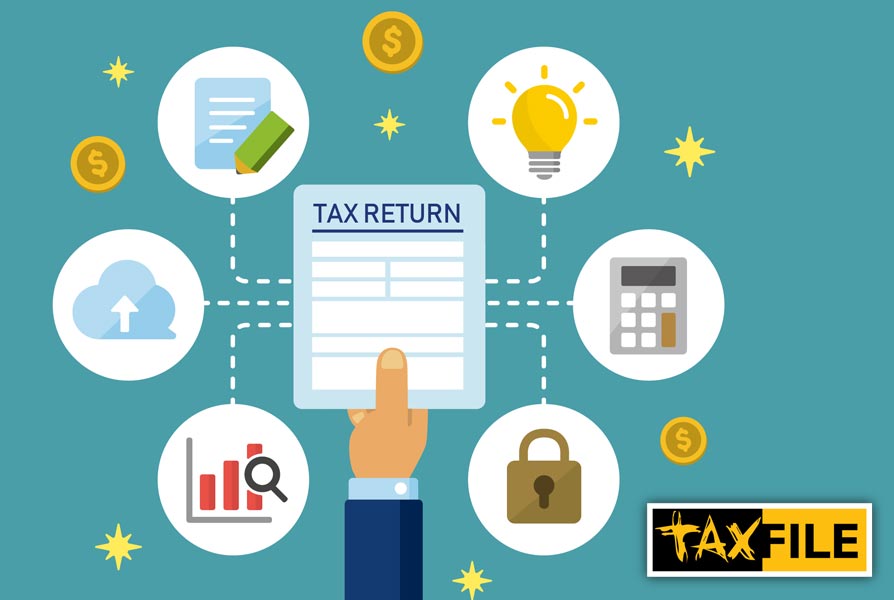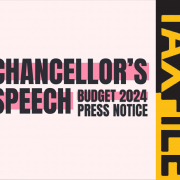Information You Need to Supply for Professional Help with Your Tax Return

[Updated November 2025]: If you’re self-employed in the UK and earn more than £1,000 after allowable deductions, you need to file a self-assessment tax return each year. It’s not only the self-employed, though. If you are on a higher income* or receive untaxed income from things like property rental, tips, commission, savings, investments, dividends, or foreign income, you also have to submit a return. Partners in business partnerships and those who made a capital gain resulting in Capital Gains Tax (CGT) also need to submit a return. You can check here if you’re not sure.
If you do have to fill in a self-assessment tax return, getting all the tax return fields filled in properly and the figures right can sometimes be difficult. That’s where professional help from companies like Taxfile is worth its weight in gold. But what information will your accountant or tax advisor need from you? In today’s guide, we’ll explain exactly what you’ll need to supply.
* (Those earning more than £100,000 for tax years up to and including 2022-23, or over £150,000 for the tax year 2023-24. Higher earners earning only through PAYE for tax years thereafter only need to submit a tax return if their tax was not collected correctly at source). You can check here if you’re not sure.
What Information Do You Need to Supply for Professional Help with Your Tax Return?
If you’re getting help filling in and submitting your tax return through an accountant or tax advisor like Taxfile, a list of what they will need from you follows below. You’ll need to supply information for the right financial tax year, of course, unless you have a different accounting period.
For the purpose of this post today, let’s assume information will be required for the tax year starting on 6 April 2024 and ending on 5 April 2025.
Here’s what will be needed:
Income-related information if applicable:
- Copies of all employment income documents (P60s, P45s, and P11ds), as well as any unreimbursed employment expenses.
- Copies of all pension income documents (P60s, state pension notices, etc.).
- Details of bank and building society interest.
- Details of all investment income (interest, dividends, etc.), as well as details of any investments that may qualify for relief, such as the Enterprise Investment Scheme.
- Details of any self-employed income and expenses (schedules and paperwork).
- Details of any rental income and expenses (schedules and paperwork).
- Details of any assets that were sold (or gifted) and may be subject to Capital Gains Tax (CGT).
- Details of any other income received, including foreign income.
Potential tax relief information:
- Details of any personal pension contributions made from taxed income.
- Details of any gifts to charity using Gift Aid.
You’ll also need to confirm if there is any other information that may be relevant to the completion of your tax return.
Personal Information:
If you’re a new client or an existing client who hasn’t supplied them already, you’ll also need to provide the following:
- A copy of your passport or driver’s licence. This is to comply with ‘Know Your Customer’ (KYC) and ‘Anti-Money Laundering’ (AML) regulations.
- Confirmation of any changes to your personal details, such as a change of address.
- If you or your partner receive Child Benefit, you’ll need to provide details.
- If you have a student loan, you’ll need to provide details of the amount you paid during the year and the remaining balance as at April 5, 2025.
Once your accountant or tax advisor receives all of your information, they will be in a position to prepare your tax return. Once approved by you, they will be able to submit it to HMRC on your behalf.
Do You Need Help With Your Tax Return?
Taxfile would be delighted to help you with your self-assessment tax return — or any other type of tax return. We prepare and submit hundreds of tax returns every year for our clients as well as offering all the usual accountancy-related services like bookkeeping, VAT returns, end-of-year accounts for limited companies, arranging tax rebates for CIS sub-contractors and others, accounting for capital gains tax (CGT), payroll, auto-enrolment for workplace pensions and much more. If it involves tax or accounting, we can help!
For help with any tax or accounting matter, call Taxfile on 020 8761 8000 or book your free 20-minute, no-obligation consultation here. Alternatively, send us a message and we’ll come right back to you. We’re tax advisors and accountants in Tulse Hill near Dulwich (SE21) in the South East. We are open 6 days a week during December and January!
We Open 6 Days a Week This Week!*
* Mon/Tues: 9 am-6 pm, Weds/Thurs: 9 am-5 pm, Fri: 9 am-3 pm as usual. Saturday 31 January 2026: 9 am-6 pm by appointment only.













